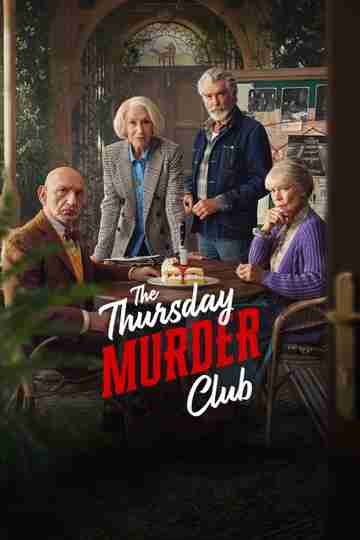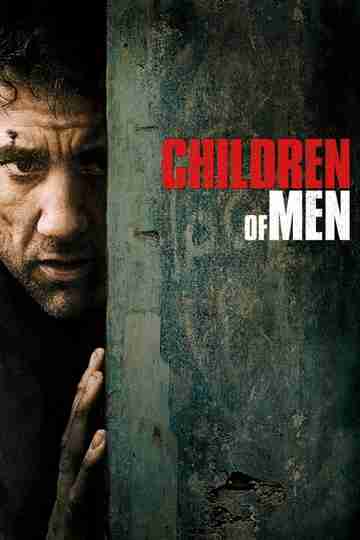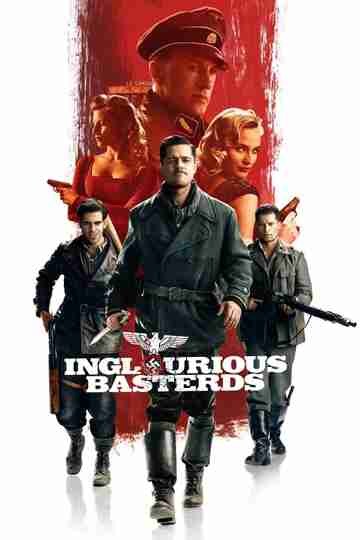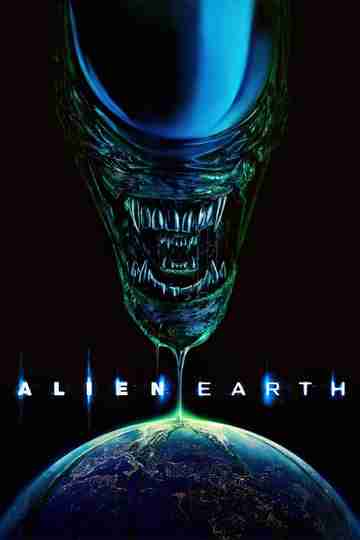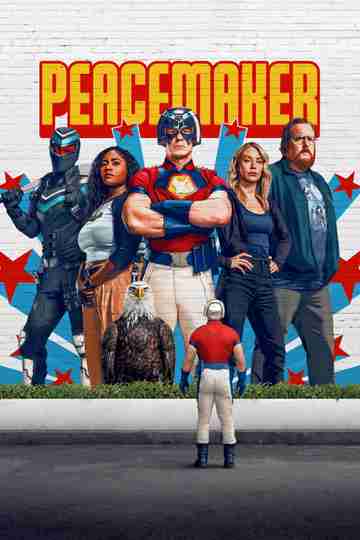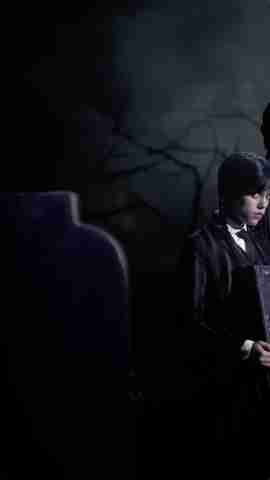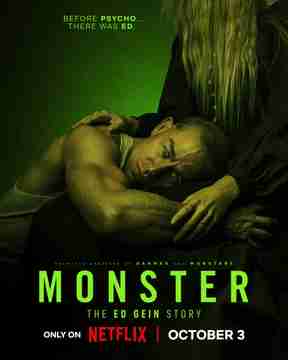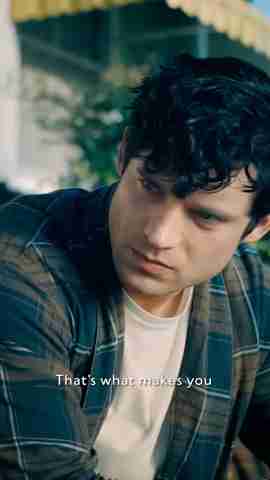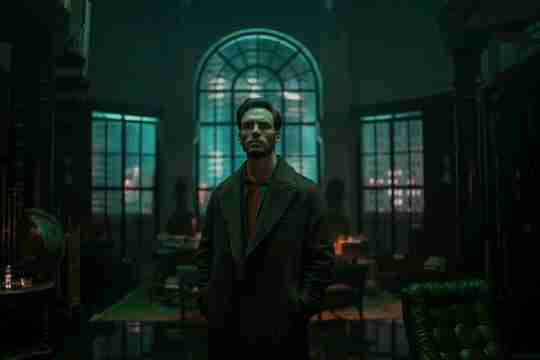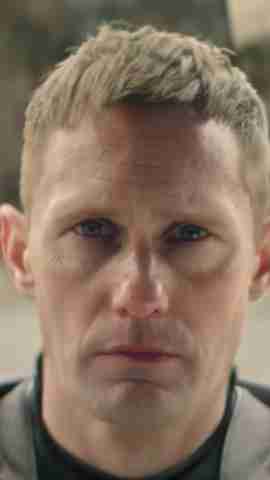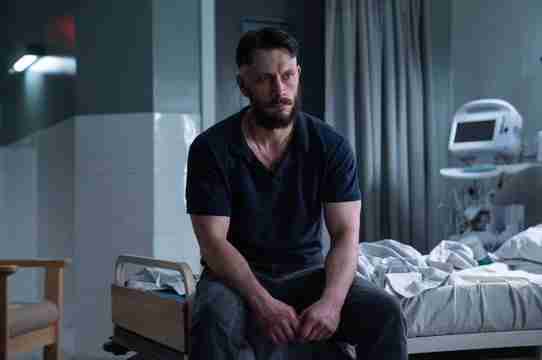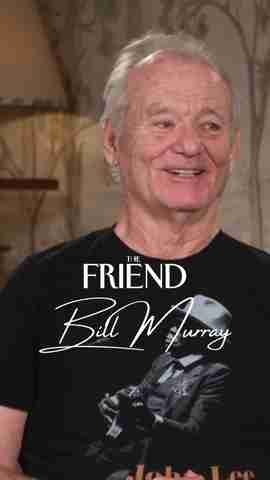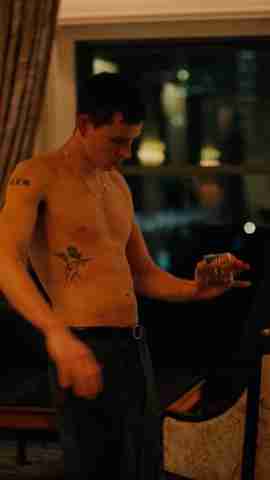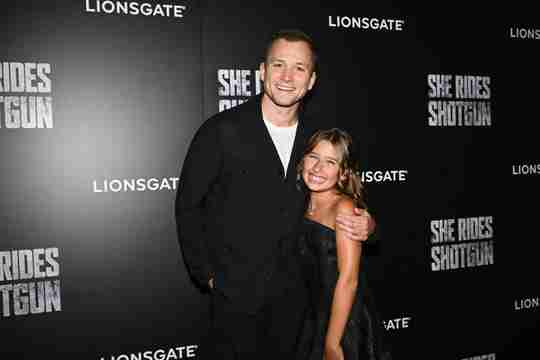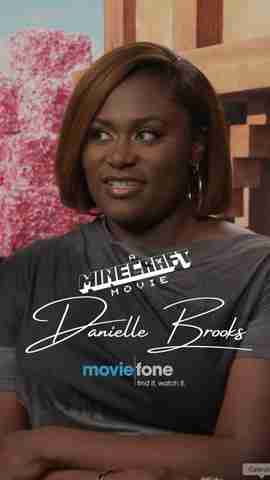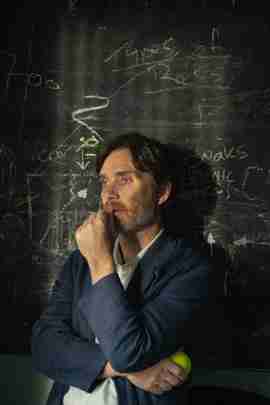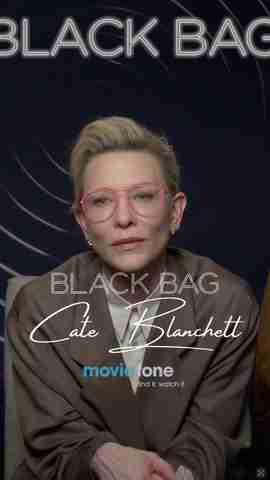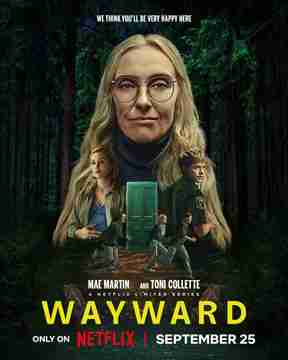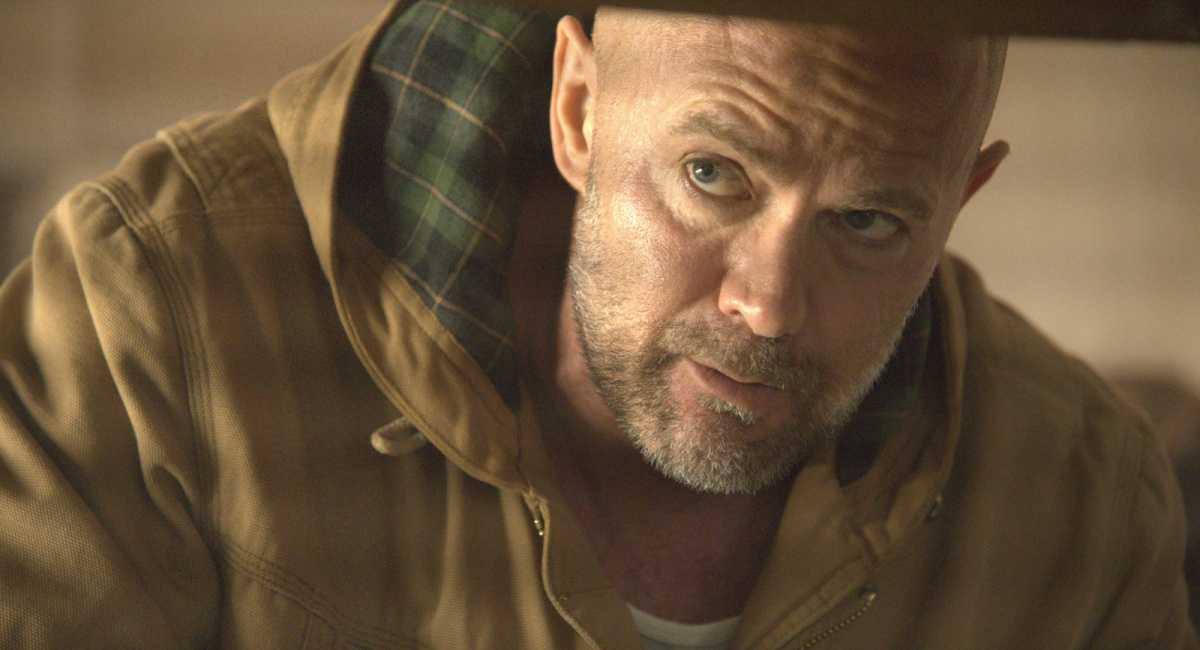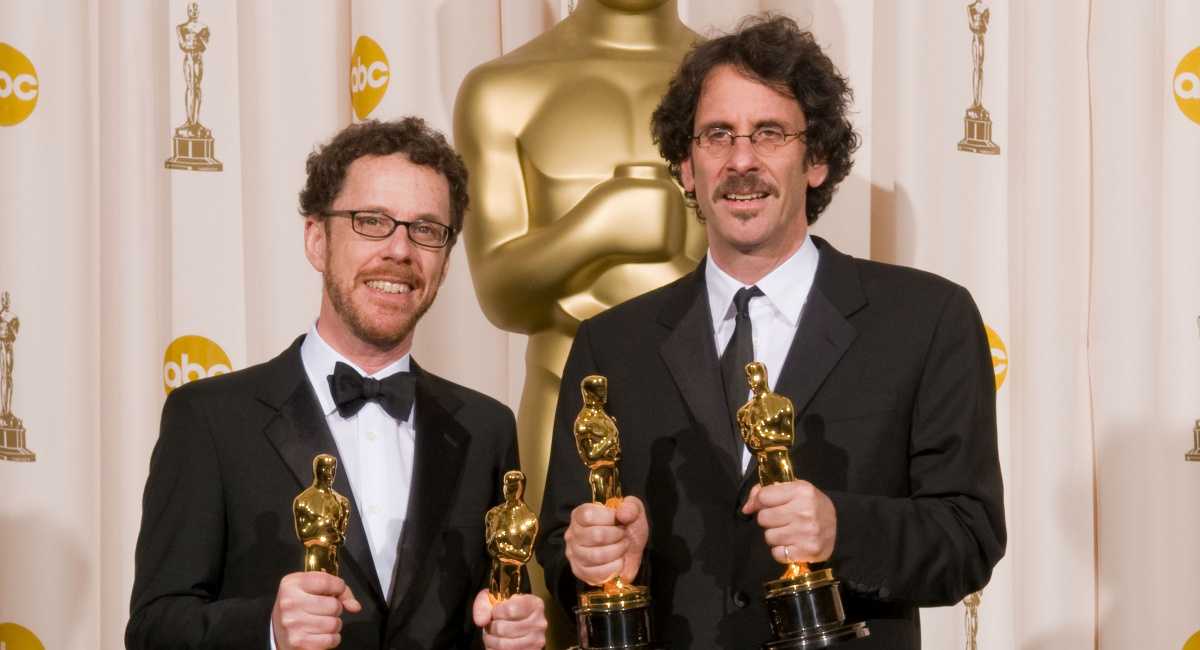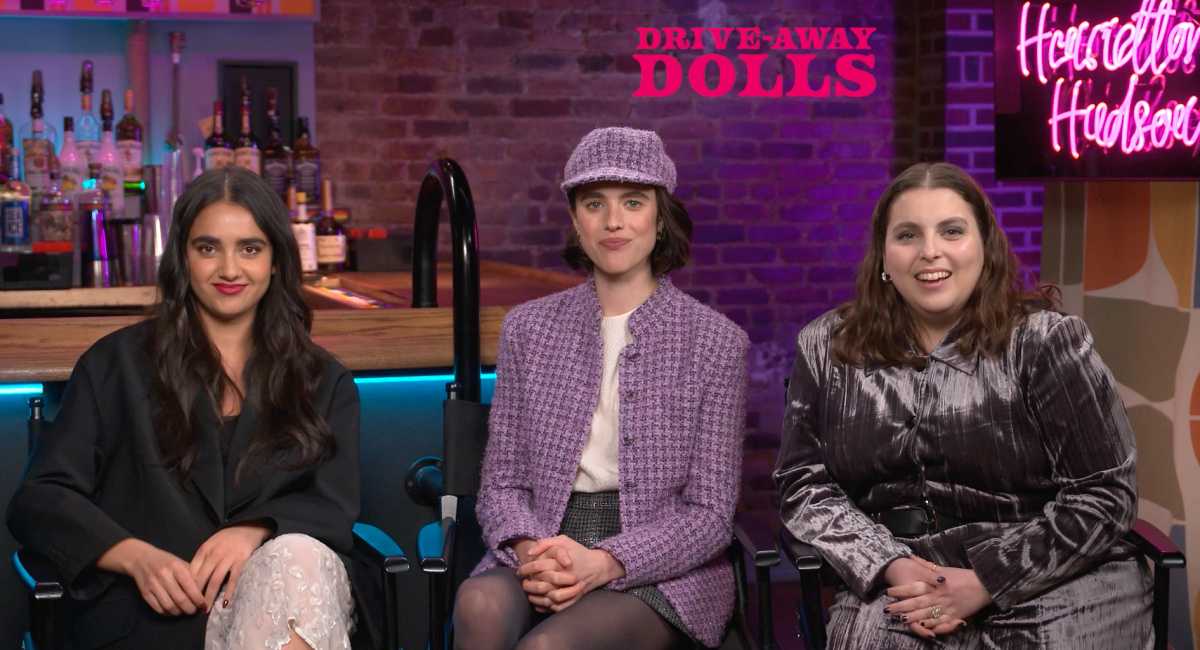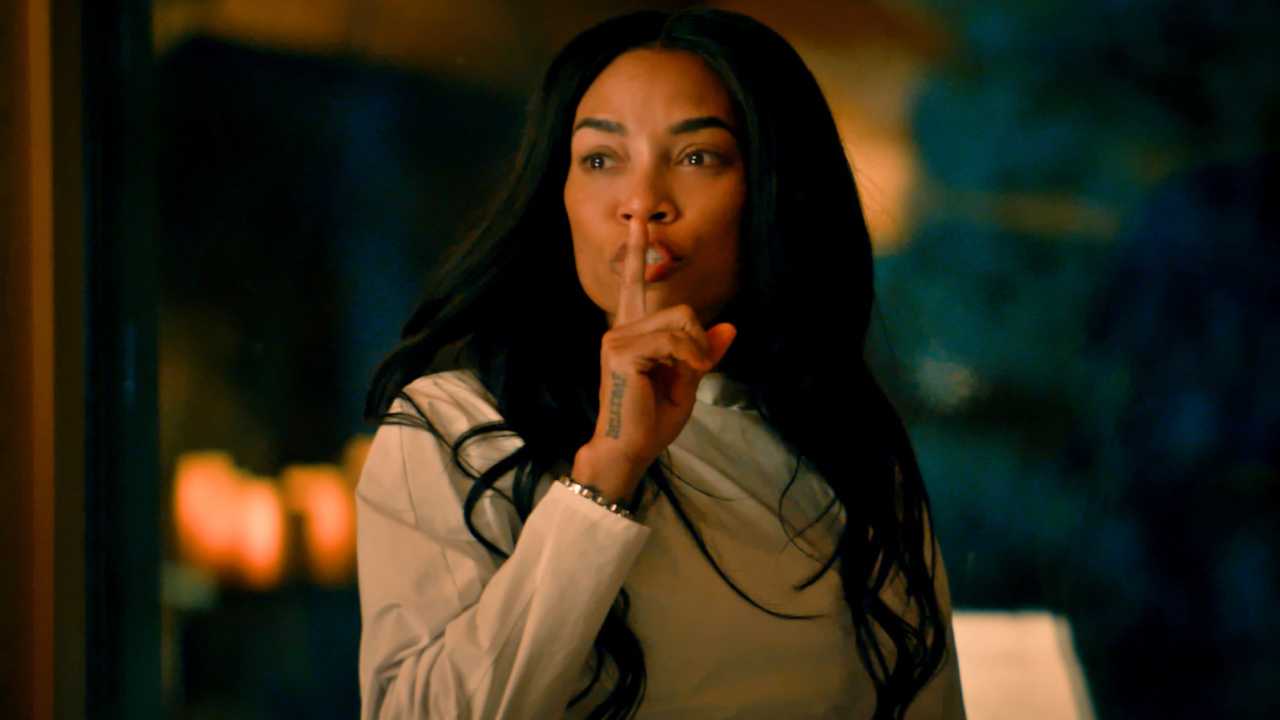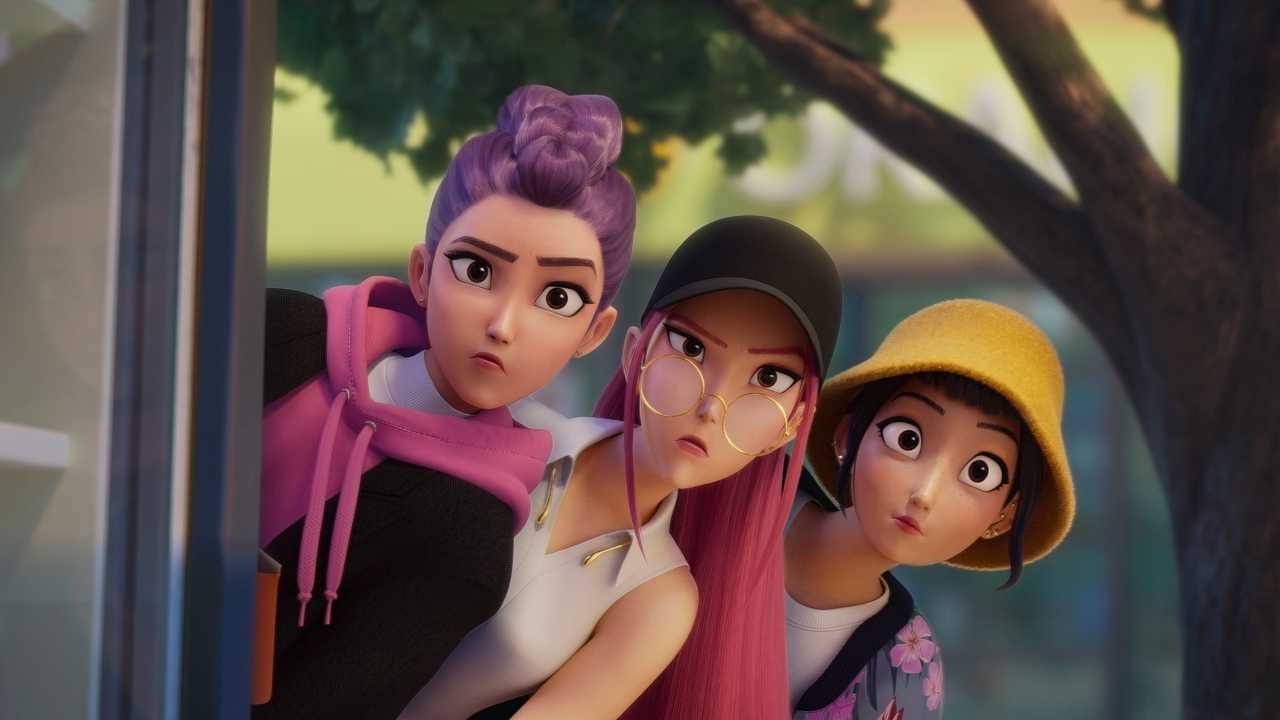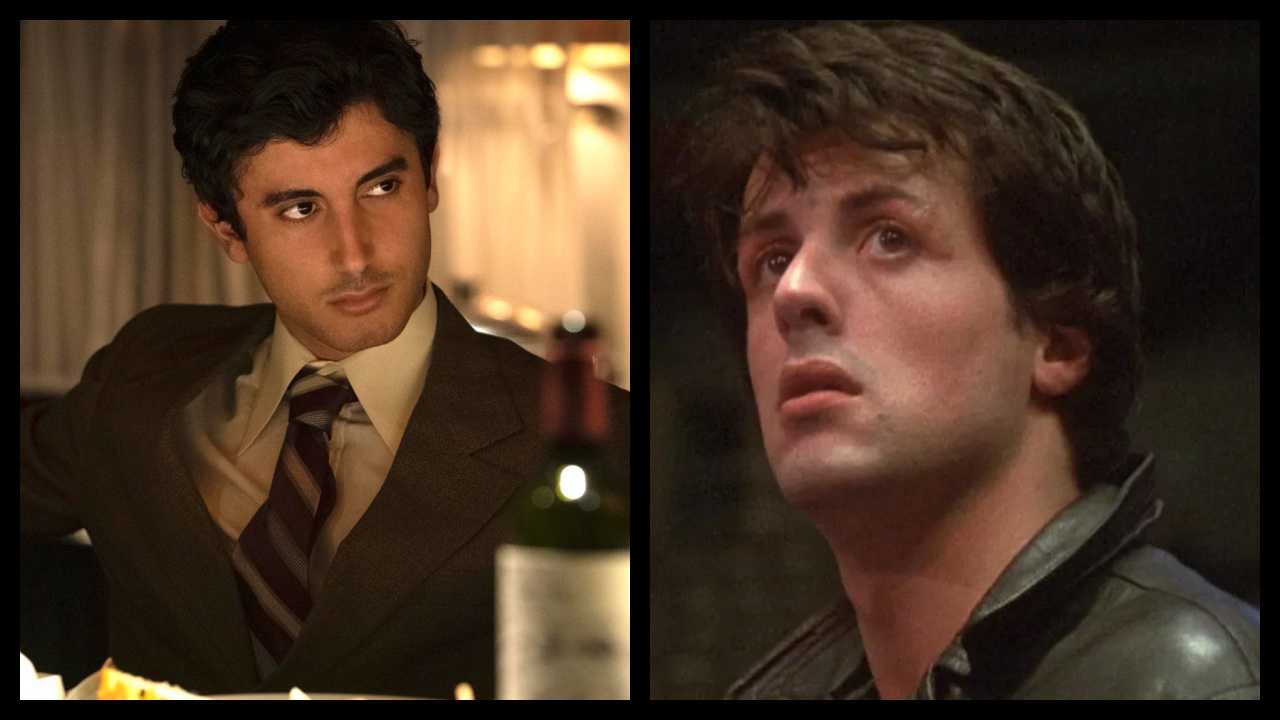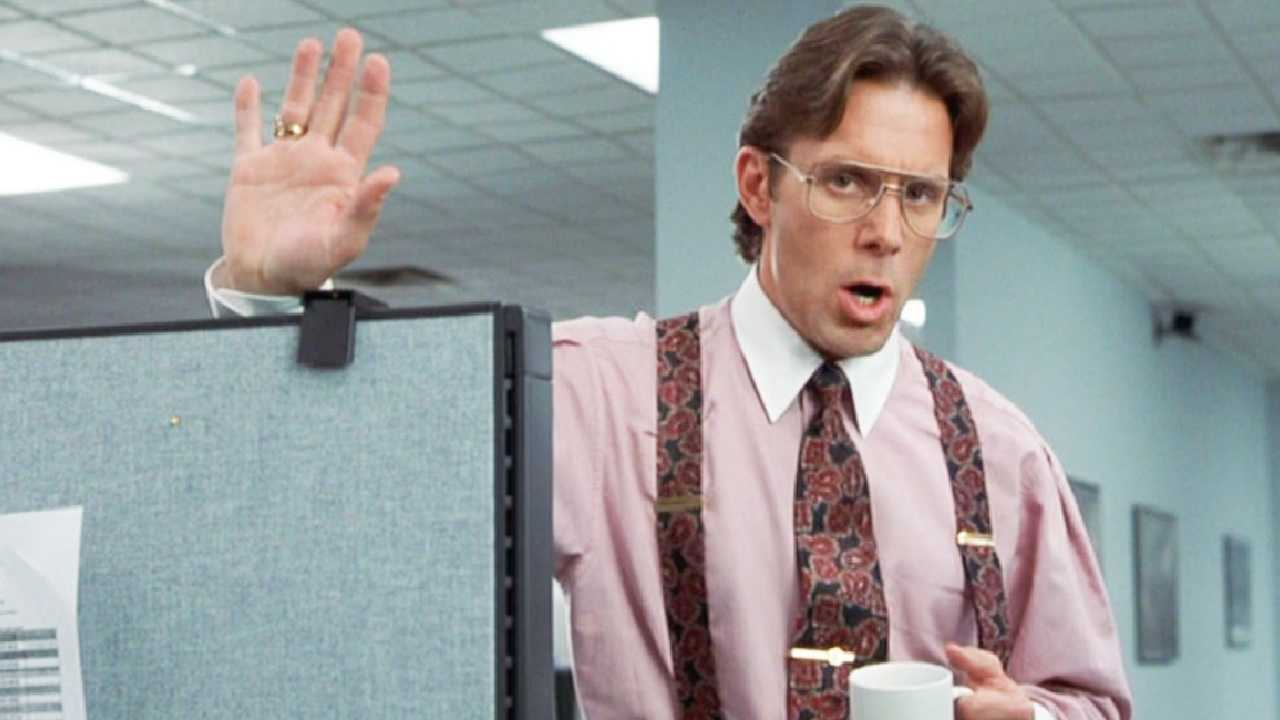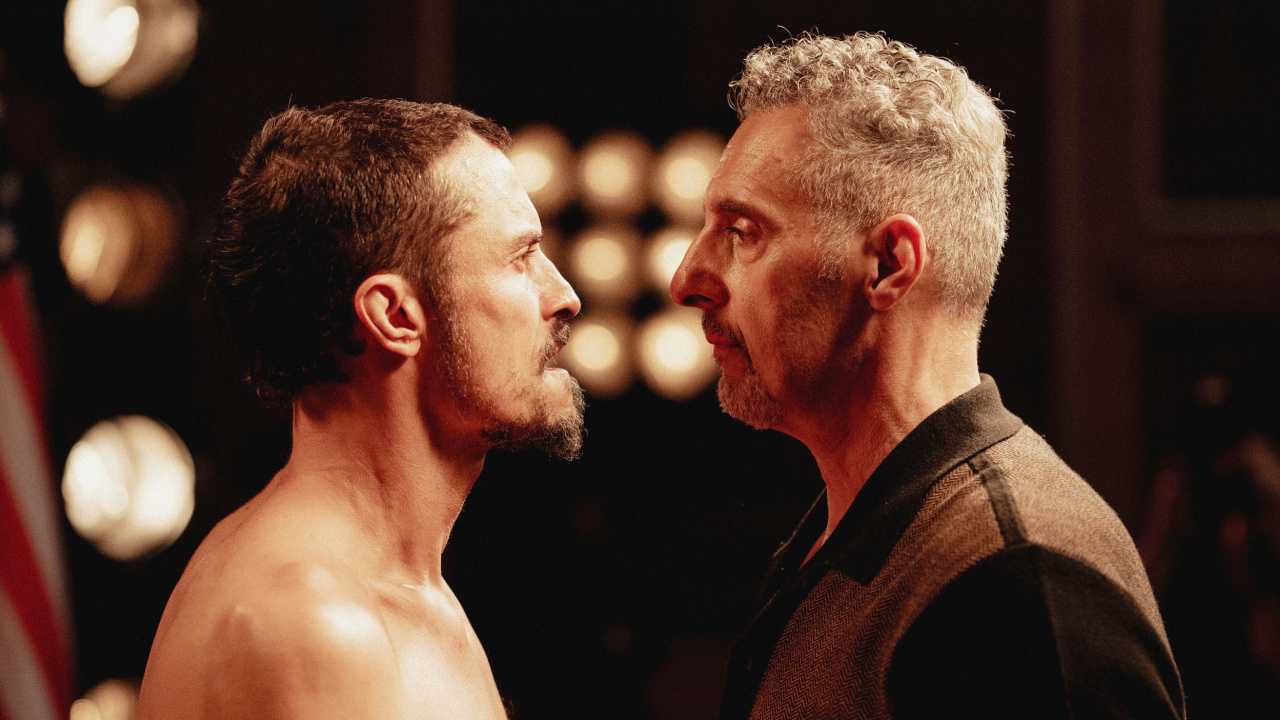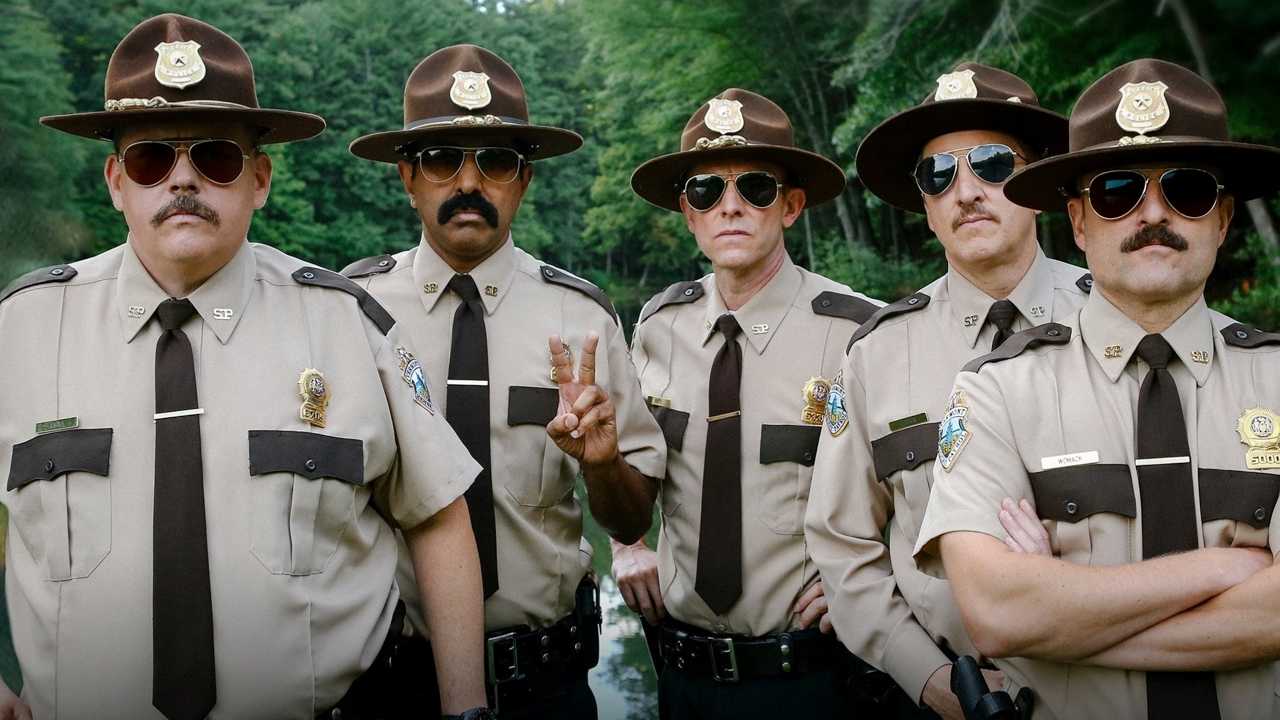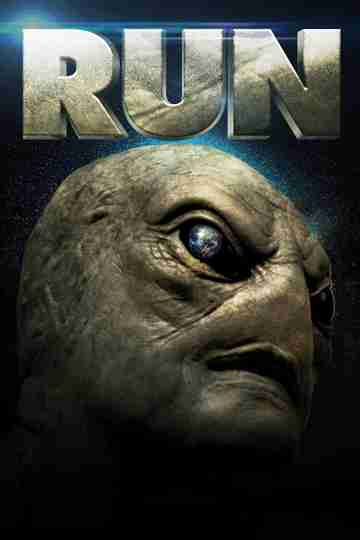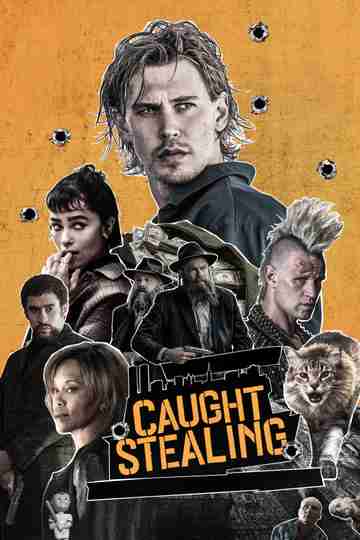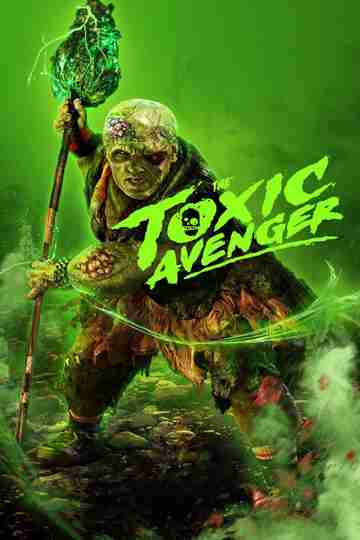Josh Brolin Was 'Blown Away' by 'Avengers: Infinity War' Story
No matter the era, Josh Brolin has a pretty firm handle on Hollywood.
If you missed brothers Joel and Ethan Coen's most recent movie, "Hail, Caesar!," you've got a new opportunity to check out the flip-side of "Barton Fink," their poison-pen take on the conflicts between Hollywood and creativity. The film, which features Brolin as a studio fixer -- the squasher of potential star scandals detrimental to box office business -- is, even with its somewhat cynical lens trained on spoiled celebrities with bad judgment, a loopy love letter of sorts to a bygone cinematic era where even the by-any-means-necessary fixer's just doing his best for the image of the system and its stars.
The second in a now-emerging Brolin Acting Dynasty -- his dad, James, paved the way; daughter Eden is following in his footsteps -- Brolin, who brings a distinctive heart and conscience to a role that might have been played one-note ruthless, has a keen sense of what Hollywood was, is, and will likely be, as he preps for the most anticipated role of his diverse and much-admired screen career: the Mad Titan himself, Thanos, in two upcoming "Avengers: Infinity War" movies.
Moviefone: What I love about your Eddie Mannix is how much he loves Hollywood. Tell me about finding that element of this guy, who you might think is going to be this brutal, leg-breaker, studio-fixer type, but he has -- in his mind at least -- Hollywood's best interests at heart.
Josh Brolin: I do, I truly believe that. He has his boss's interest at heart. And his boss, his business, is Hollywood, so I think he's very loyal in that way. He's kind of like a mafioso in that way: it's like, whatever the godfather says is what you do.
But I also think. as an aside for him, he truly appreciates and loves it, which is like, I'm just thinking about it now because it's been a while. When he goes into the confessional, and he's just like, "What's the right thing, and what's the thing that I want? And the right thing would be able to get money, but is that really the right thing? Being bought off, is that the right thing? Whereas here, I feel like a laborer: it's a pain in the ass. I've got girls with mermaid sh*t on who are pregnant, they don't know who the father is. They've got another guy who's disappeared who's a drunk, who he's probably f*cking some extra."
All the craziness of the children that he's trying to round up and make sure that they behave. And yet, that could all go away, and he could make three times the money, but he doesn't want to because it's like ... because it's his life. This is what he does. This is what he knows.
When you did your research -- and I know you did your research -- on the real-life Eddie Mannix, that inspired the character and that era? What captivated you about that time in Hollywood history? And what made you go, "God if I was around then, there's no f*cking way I could live with this?"
As an actor ... the amount of debauchery that went on was kind of unprecedented. You could never get away with, I mean, look at me. Look at my life. I stopped trying to get away with it, because you can't get away with it, because there's too many iPhones. There's too many people. There's too much social media. It's like, everybody has a walkie-talkie basically now. You know? And back then, it wasn't like that. Therefore, people's shadow sides, people's dark sides, were able to manifest and continually manifest ...
... I mean, I read and heard so many stories, man. And I'm like ... guys who were making, on the average, $30,000, got into the movie business and were suddenly making the equivalent of $500,000,000 a year. I mean, all that breeds, for the most part, is wrongdoing. You know? And yet, Eddie, the real Eddie, when I researched him, is not a nice guy. I mean, really not a nice guy. So it's more a hybrid of like, I can't remember the PR guy's name, but it's more Thalberg, Mayer...
Howard Strickland.
Yeah, Strickland, exactly. It's like those four guys wrapped into one. He's much nicer. Even though he was a tough guy, he really cared. That's what came across, is how much he cared about these kids.
Did the Hollywood system ever try to control you? Or did they let you do your thing and let the chips fall where they may?
It depends on the personality too, man. I don't think that I was insulting. A lot of people rebel, and in their rebellion, they'll be insulting. I think I ended up doing what I did, but I think I was nice to work with. I was always professional.
So I think that naturally ... it's not cosmetically naturally, but the fact that I found the Coens, and the Coens found me, and that I really enjoy working with them and they really enjoy working with me because we have similar sensibilities. There's not a lot of pretense there, but we also like, we like manifesting stories that we find interesting, as opposed to pandering to something that we think is going to be the most successful. So I've been very lucky in that way.
People say, "I like your résumé, I like what you've chosen." I always appreciate that. I would still do "Jonah Hex" again. I don't like the way it turned out at all, but I do think that there's a good movie there. I think my intention was right. You're never going to be perfect, man. You just do your best.
Your dad came up during the shift of power, from the studios to more in the hands of the talent and the filmmakers. Do you like to hear war stories from his days in the trenches?
Yeah, he didn't have a lot of war stories. He was under contract at Fox, I think, first, and then Universal. So I do remember: I didn't grow up in LA, but I do remember the whole, like, "This is what you're going to do." He was on the tail end of that. I mean, he was in the '60s and '70s, and we're talking about the '50s and '40s, where I think it was much more like, you're going to do six movies for us this year, and you can't work for another studio, or a studio has to buy you out from us. All that kind of stuff. That wasn't really ... that didn't really exist.
But my dad was being, what do you call it, what's the word? Groomed, to be an actor. Had to go to dance class, and had to go to fencing class, and all that stuff. Then I think he was let go. They were like, this guy's not going to work out. Okay, so we'll let him go, and then another studio may pick you up and try to do the same thing. So, yeah, those kinds of stories I got to hear, and they weren't horror stories at all. It was just a totally different mentality. Now, it's much more individualized.
Now that your daughter Eden's career is kind of catching fire, do you feel like you've got war stories you want to share with her? She works in a different Hollywood than the one you came up in.
Yeah, it is a different. There's more opportunity now, in like TV being almost a better, more creative medium. It's a great time for her. It's an amazing time. Hollywood's always changing, man. It's always changing. Why do you think it's so different now? It's always changing. It's changing with the times. It's changing with the economy. But it comes down to: What do you want to do? You want to work obviously, but you also want to tell good stories.
Or when I saw "Manson's Lost Girls," I go, "Okay, that's a Lifetime movie" -- the general perception of a Lifetime movie is it's not going to be very good. And not only do I think it was pretty decent, but I thought she was amazing in it. I thought she had created a full-blown character. And I go, "That's when the individual's talent overwhelms you being manhandled, nothing but manhandled." I think people really started to see that talent. She's starting to work more and more. So the talent's winning out right now. We'll see.
You famously get to slap George Clooney, and there's another kind of confrontation with Ralph Fiennes and Alden Ehrenreich, which is not physically an altercation, but a real actor-director showdown. Have you seen that kind of stuff go down on sets? Have you seen it get heated and tense and almost dangerous?
Huge. Not dangerous, ever, but hugely tense, hugely tense. It was kind of like the David O. Russell thing. Nobody should see that. That's just part of what it is. And it's also really fun. Sometimes days are so fun, you're like, "I shouldn't be being paid for this. It's just ridiculous. What we're doing is ridiculous." But at the same time, it depends on the movie, the mood of the movie, the tone of the movie, what it is you're doing.
That's why I call it a profession of humiliation, because you go out there and it's a total unnatural act, what you're doing. You have to manipulate yourself into certain mindsets that may not be so attractive in order to fulfill the vision of the director or the script that you've chosen to do.
But yeah, things can get really wacky. I enjoy it thoroughly. I like when they get tense. I like when they get fun. I like the whole thing. That's why I do it. It's a very colorful experience. My whole thing man is I get to my deathbed at the end of my life and I look back and I just have one big chuckle before I go. And so far, it's working. And the more that the Coen brothers are involved, the better it is for me.
"Avengers: Infinity War" is going to be a singular film experience that you're going to be asked to talk about most likely to the end of your days. So, tell me, where are you now as far as your anticipation, your excitement, for the whole thing, and to go fully into character rather than these cameos that you've done?
Yeah, I sat at a table and I listened to the story from beginning to end, which was ... you know, sometimes you go around and you go, "Oh, it's a great movie. Or this is a great experience," and you kind of know that it's not. This is the opposite.
First of all, from a publicity point of view, or an interest, I've gotten more publicity playing Thanos, even though I haven't done it yet, than all other movies combined. If there's any blurb of publicity at all for me, it includes Thanos in some way or another. "By the way, he's got "Hail, Caesar!" coming out. But don't forget about Thanos -- that's coming out," which is amazing, which is really cool.
Then the other side of it is really how much it means to people. It all comes down ... these stories ... these Avengers stories all come down to this conclusion, and that's our involvement. Basically, my character against everybody. And it's really fun what they've chosen to do with the story. I think it's brilliant, personally. I was blown away, and had goose pimples pretty much 50% of the time that I was listening to what was going on, and pretty amazed that I'm going to be involved in it. So it's a big thing that's coming up.
"Hail, Caesar!" hits DVD and Blu-ray June 7th. "Avengers: Infinity War - Part 1" is due in theaters May 4th, 2018.

